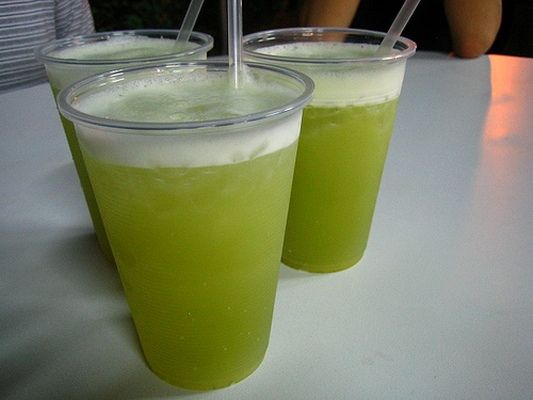Even as traders in Tamil Nadu continue to boycott Coke and Pepsi, a few homegrown beverage brands are raking in the profits, says T E Narasimhan.

For Coke and Pepsi, summer has always been a season of plenty. As temperatures shoot up, so do advertising budgets and brand launches.
This year, however, their plans have faced a setback in the south, primarily Tamil Nadu, where sales are down because of a traders’ boycott.
While the full impact on final sales numbers is still not known, a number of small homegrown brands say their sales have doubled since the beginning of the month and they have lined up new launches and promotional schemes to cash in on the emerging opportunity. They are also raising production capacities to make the most of the summer months.
“We are expecting a 100 per cent increase in our sales,” said S Karthigaikani, general manager of the 118-year-old Sri Mappillai Vinayagar Soda Company. His company sells flavoured sodas that have seen a sharp spurt in demand.
The Tamil Nadu soft drinks market is estimated at ₹1,600 crore, 80 per cent of which belongs to Coke and Pepsi.
The maximum impact has been felt in areas outside Chennai.
According to the CEO of a local beverage company that has a major presence in south and west India, regional brands are racing to meet orders. “The problem is supply, we are not able to meet the demand,” he says.
Kali Mark, a key regional player, is increasing production of their local brand, Bovonto, and setting up a new facility in Andhra Pradesh to cater to the growing demand at home and abroad.
The traders say they want Coke and Pepsi out of the state because the two draw on the state’s limited water resources and also because they are unhealthy.
While Coca Cola India and Pepsico India did not respond to emailed queries, the Indian Beverage Association restated its official position that the ban ‘was against the proven fundamentals of robust economic growth’.
Harish Bijoor, Bengaluru-based brand consultant says, “The MNCs need to take a white-paper approach. In this case, there are two issues. One is about the water but that does not directly touch the end customer. But the high sugar content and the implications for consumer health… that needs to be addressed.”
The question that he and other industry experts are raising is whether the companies can really afford their silence.
The southern market is a significant one and has eight big local brands that compete with Coke and Pepsi. That apart, there are around 27 brands that pop up at the start of summer and exit with the rains; with the boycott, these numbers could see a sharp rise.
Also, according to several brand studies conducted over the course of 2015 and 2016, local beverage and food brands are growing faster and spreading deeper than global labels.
According to a senior executive with a MNC, local brands are gaining because of their deep penetration and low pricing. “These players also flaunt their India origin to make the most of the nationalist sentiment that is currently in favour with many consumers and have even labelled the boycott as a swadeshi (nationalist) movement.”
In Madurai, Coke and Pepsi sales slid by 60-70 per cent.
In Tiruvannamalai, a temple town, where the two brands used to sell close to 500 cases a day, it is down to 200 cases a day.
The story is similar in Tiruppur, Pudukkottai, Tirunelveli and other parts of the state.
Interestingly, many small traders remarked that, while Pepsi and Coke are facing the heat, other products from their stable such as Slice and Maaza have been spared.
In all likelihood, customers and shopkeepers in small towns are not aware that these belong to the same companies.
Image used for representational purposes only. Photograph: Food Trails/Wikimedia Creative Commons











 © 2025
© 2025